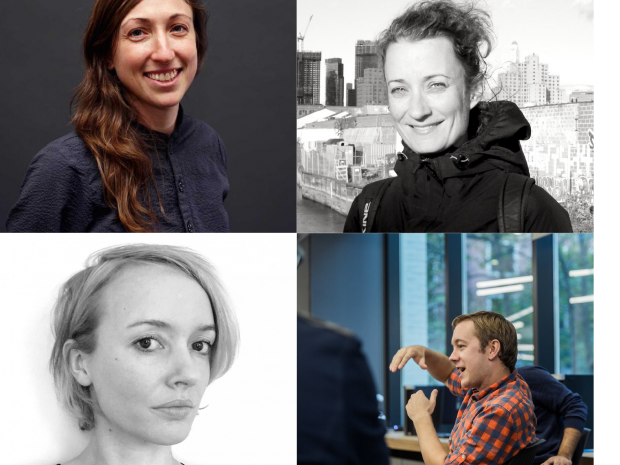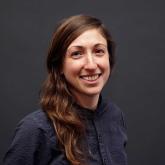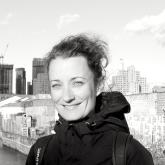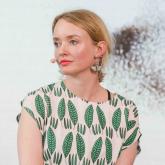CUSP Research Seminar: “FloodSense – Longitudinal Remote Urban Flood Monitoring”

This seminar is co-sponsored by CUSP and the C2SMART Center.
Please join NYU CUSP for our Research Seminar Series, featuring leading voices in the growing field of Urban Informatics.
Our next virtual seminar will feature Andrea Silverman (Assistant Professor, NYU Tandon), Charlie Mydlarz (Senior Research Scientist and Research Assistant Professor, NYU CUSP), Elizabeth Hénaff (Assistant Professor, NYU Tandon), and Tega Brain (Assistant Professor, NYU Tandon) for a discussion on “Floodsense – Longitudinal Remote Urban Flood Monitoring.”
Zoom link provided with RSVP. CUSP’s research seminars are open to the public!
Floodsense - Longitudinal Remote Urban Flood Monitoring
In New York City, sea level rise has led to a dramatic increase in flood risk, particularly in low-lying and coastal neighborhoods. High intensity rain storms compound this risk by conveying large volumes of water to drains, leading to backups and overflows. The resulting presence of standing water on streets and sidewalks can impede mobility and restrict access to transportation. Urban flood water can also contain a diverse array of contaminants, including fuels, raw sewage, and industrial/household chemicals.
Access to real-time information on flooding can improve resiliency and efficiency by allowing residents to identify navigable transportation routes and make informed decisions to avoid exposure to flood water contaminants. Flood data can also aid city agencies in delineating areas to target for flood control improvements and making data-driven decisions on flood management. However, very little data exist on the frequency and extent of urban surface flooding, and there is an unmet need for hyperlocal information on the presence and depth of street-level flood water.
In this talk we will introduce the various goals of the FloodSense project and the research that it enables. We will also cover our current and future sensing approaches for gathering street-level flood data, and the development of a hyper-local flood data portal for the project’s varied stakeholders.
The FloodSense project is funded by the C2SMART USDOT University Transportation Center with support from CUSP.
Charlie Mydlarz is a Senior Research Scientist and Research Assistant Professor at NYU CUSP and the Music and Audio Research Laboratory. He is an acoustician/engineer who designs, develops, and deploys IoT devices to tackle different challenges, including: urban noise sensing, acoustic condition monitoring, urban flood detection, soundscape perception, building/classroom efficiency, and urban mobility. His PhD research at The University of Salford’s Acoustic Research Centre enabled public engagement in a large-scale mass participation soundscape study using smart phones for global subjective and objective data collection and analysis.
Andrea Silverman is an Assistant Professor of Environmental Engineering at the NYU Tandon School of Engineering. In an effort to protect public health and environmental quality, Dr. Silverman’s research program is focused on detection and disinfection of pathogens in water and wastewater, and evaluation of the processes that determine the fate of microorganisms in the urban and natural water cycles. Applications of Dr. Silverman’s work include water quality and wastewater treatment, the design of natural wastewater treatment systems (e.g., treatment ponds and constructed wetlands), the safe reuse of human waste, and the impact of frequent, hyperlocal flooding on urban environments. Dr. Silverman works in both high- and low-resource settings, and has conducted fundamental and applied research in New York and California, USA; Accra, Ghana; and Nairobi, Kenya.
Elizabeth Hénaff is a computational biologist with an art practice. At the center of her work is a fascination with the way living beings interact with their environment. This inquiry has produced a body of work that ranges from scientific articles in peer-reviewed journals, to projects with landscape architects, to showing as an artist nationally and internationally. Her lab at NYU Tandon School of Engineering studies the interaction of organisms and their environment through scientific and design enquiries. Through experimental practice, they aim to understand how the design decisions of architects, city planners, and material scientists affect the ubiquitous living component of the spaces we inhabit: the environmental microbiome.
She currently holds an Assistant Professor position in the Technology, Culture and Society department at the NYU Tandon School of Engineering in New York City.
Tega Brain is an Australian-born artist and environmental engineer whose work examines issues of ecology, data systems and infrastructure. She has created wireless networks that respond to natural phenomena, systems for obfuscating fitness data, and an online smell-based dating service.
She has recently exhibited at the Guangzhou Triennial, the Haus der Kulturen der Welt in Berlin, the New Museum, NYC and the Science Gallery in Dublin. Her work has been widely discussed in the press including in the New York Times, Art in America, The Atlantic, NPR, Al Jazeera and The Guardian and in art and technology blogs like the Creators Project and Creative Applications. She has given talks and workshops at museums and festivals like EYEO, TedxSydney and the Sonar Festival.
Tega is an Assistant Professor of Integrated Digital Media, New York University. She works with the Processing Foundation on the Learning to Teach conference series and p5js project. She has been awarded residencies and fellowships at Data & Society, Eyebeam, GASP Public Art Park, the Environmental Health Clinic and the Australia Council for the Arts.




